
Ingredient
Juice, guava
"Tropical Delight: Exploring the Exotic Flavors of Guava Juice"
Guava juice is made from the ripe fruit of the guava tree, which is native to tropical regions. It has a vibrant pink color and a sweet, tropical aroma. The juice has a smooth and slightly thick texture, with a tangy and tropical taste that is reminiscent of a blend of strawberries and pears. It is often described as having a perfect balance of sweetness and acidity. Guava juice is known for its refreshing and thirst-quenching qualities, making it a popular choice for tropical-inspired beverages and cocktails.
Origins and history
Guava is believed to have originated in Central America and Mexico, where it has been cultivated for thousands of years. It was later introduced to other tropical regions around the world, including the Caribbean, South America, and Southeast Asia. Guava holds cultural significance in many countries, often being used in traditional dishes, desserts, and beverages. It has a rich history and has been enjoyed for its unique flavor and nutritional benefits for centuries.
Nutritional information
Guava juice is a rich source of vitamin C, providing more than 200% of the recommended daily intake in a single serving. It is also a good source of dietary fiber, vitamin A, and potassium. Additionally, guava juice is low in calories and contains no fat or cholesterol.
Allergens
Guava is not commonly associated with allergies, but individuals with a known allergy to tropical fruits should exercise caution.
How to select
When selecting guava juice, look for brands that use 100% pure guava juice without any added sugars or artificial flavors. Check the ingredient list to ensure it contains only guava juice and possibly some natural preservatives. Opt for brands that use ripe guavas for a more flavorful and authentic taste.
Storage recommendations
Guava juice should be stored in the refrigerator to maintain its freshness and quality. Once opened, it is best consumed within a week. To extend its shelf life, guava juice can be frozen in ice cube trays and stored in a freezer-safe container for up to three months.
How to produce
Guava trees can be grown in tropical or subtropical climates. They require well-drained soil and regular watering. The fruit is typically harvested when fully ripe and can be juiced using a juicer or blender. Simply remove the seeds and blend the flesh until smooth. Strain the mixture to remove any pulp or seeds, and the juice is ready to be enjoyed.
Preparation tips
Guava juice can be enjoyed on its own as a refreshing beverage or used as a base for smoothies, cocktails, or mocktails. It pairs well with other tropical fruits such as pineapple, mango, or passion fruit. Guava juice can also be used as a marinade for meats or as a flavoring agent in sauces and dressings. For a twist, try adding a splash of guava juice to sparkling water or iced tea for a refreshing and tropical twist.
Culinary uses
Guava juice is commonly used as a base for tropical-inspired beverages, smoothies, and cocktails. It can also be used as a flavoring agent in desserts, sauces, and dressings.
Availability
Guava juice is commonly available in tropical regions where guava trees are cultivated, including Central America, the Caribbean, South America, and Southeast Asia. It is also available in many international grocery stores and online retailers.
More ingredients from this category » Browse all

Mixed fruit juice
"Fruit Fusion Delight: A Symphony of Flavors in Mixed Fruit Juice"
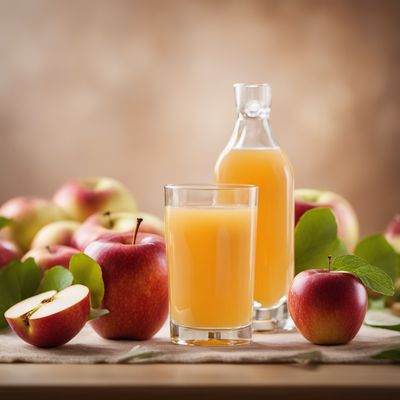
Juice, apple
The Essence of Nature: Exploring the Refreshing Apple Juice

Juice, red currant
Tangy Elixir: Unleash the Vibrant Flavors of Red Currant

Juice, lime
The Zesty Elixir
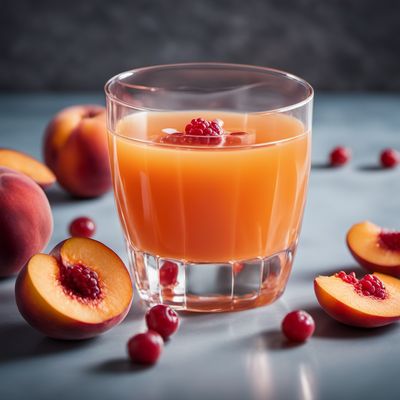
Juice, peach
"The Golden Elixir: Unleashing the Sweet Essence of Peaches"
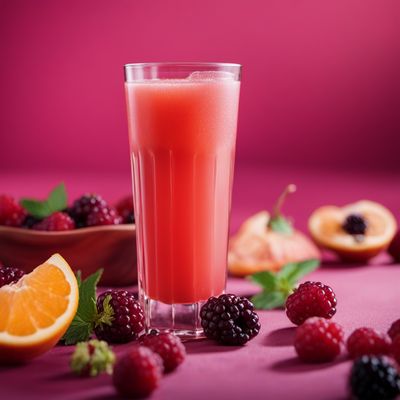
Juice, blackberry
The Dark Elixir

Juice, prune
The Sweet and Tangy Elixir of Prune Juice
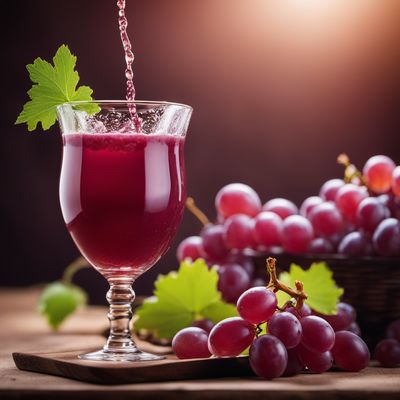
Juice, grape
The Liquid Jewel

Juice, cranberry
Tart Elixir: Unveiling the Vibrant World of Cranberry Juice
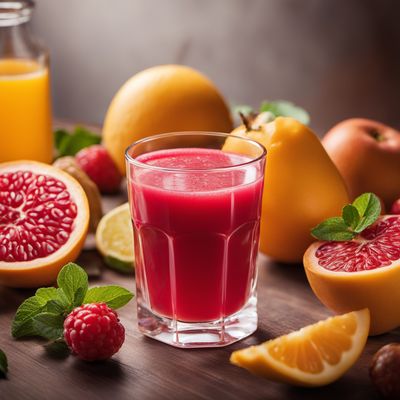
Juice, passion fruit
The Tropical Elixir

Juice, elderberry
The Immunity Booster

Juice, nectarine
"The Golden Elixir: Unleashing the Vibrant Flavors of Nectarine Juice"
Recipes using Juice, guava

Espumilla Delight
Fluffy Clouds of Ecuador: Espumilla Delight

Colombian Hojaldres with Guava Jam
Flaky Delights: Colombian Hojaldres with a Sweet Guava Twist

Southern African Spumoni
Tropical Delight: Southern African Spumoni
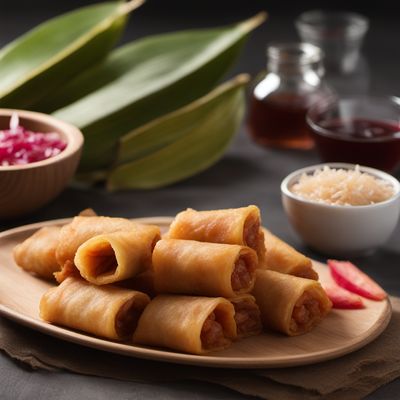
Turon with a Twist
Crispy Plantain Rolls with a Tropical Flair

Cuban Sachertorte
Havana Chocolate Delight

Romeu e Julieta Delight
A Sweet Symphony: Romeu e Julieta Delight

Golfeados with Guava and Cheese
Sweet and Savory Venezuelan Delight: Guava and Cheese Golfeados

Cuban Apple Pie
Tropical Twist Apple Pie